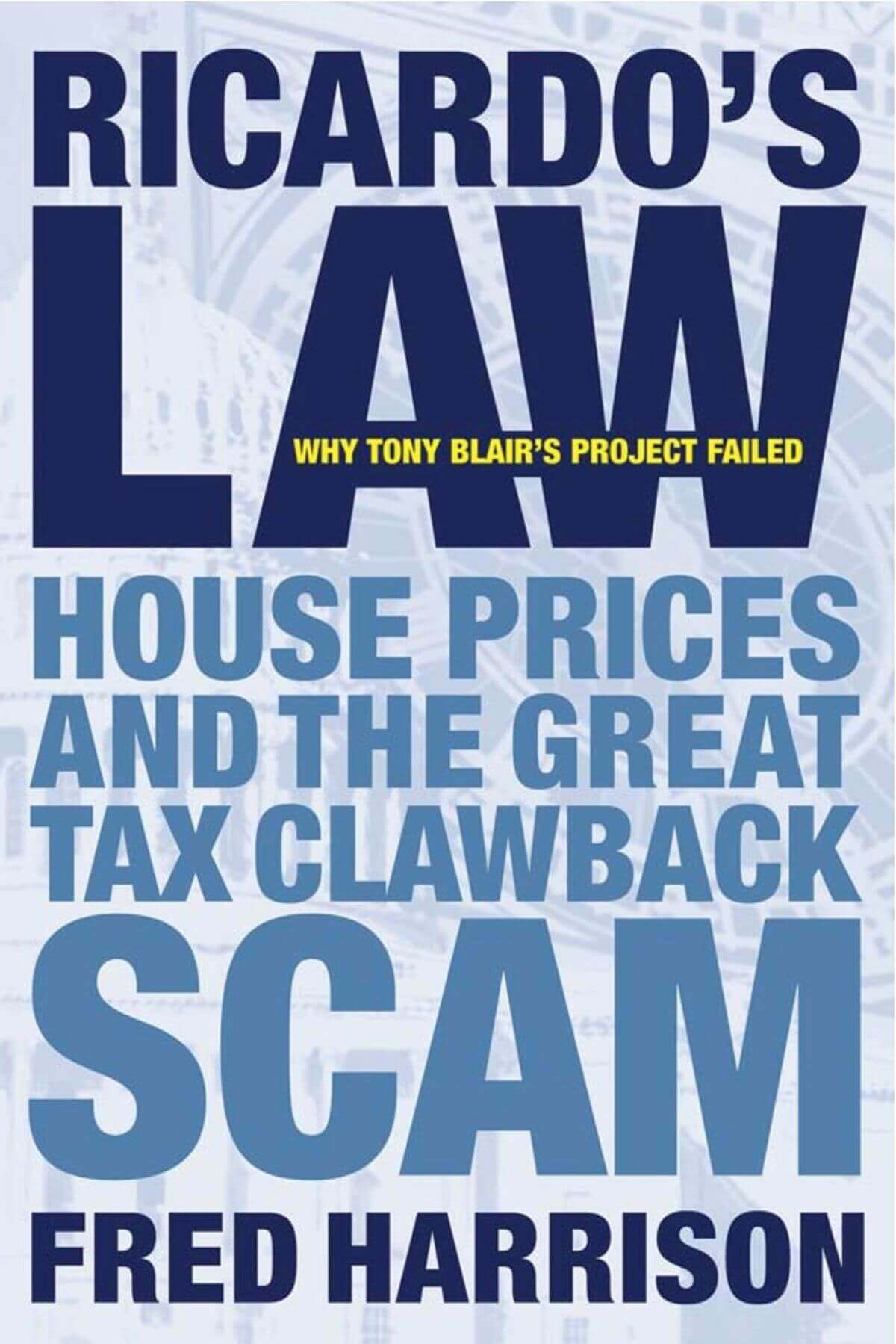Just as Gordon Brown created a storm by his tax raid on pensions, so is George Osborne by his raid on North Sea oil companies. Brown created huge black holes in pension funds, while Osborne looks like halting massive North Sea Oil investment just when the government is urging companies to invest! It matters not whether Conservative or a Labour are in office, because the Chancellor is advised by the Treasury which, in its legitimate concern to raise enough revenue to fund government, is blind to the consequences of how they go about it. Consequently they all too often kill the goose that lays the golden eggs.
A blind spot in the Treasury is the Law of Rent, also known as Ricardo’s Law after the economist who provided the first scientific explanation of how it works. As David Ricardo pointed out in the Preface to his Principles of Political Economy, and Taxation ‘… without a knowledge of [the law of rent], it is impossible to understand the effect of the progress of wealth on profits and wages, or to trace satisfactorily the influence of taxation on different classes of the community’. Clearly Gordon Brown and George Osborne, advised by Treasury officials, have not traced satisfactorily the influence of taxation on the pensions and oil industries.
Milton Friedman recognised the problem and suggested where the remedy might lie: ‘There is a sense in which all taxes are antagonistic to enterprise – yet we need taxes … so the question is, which are the least bad taxes? In my opinion, the least bad tax is the property tax on the unimproved value of land, the Henry George argument of many, many years ago.’
Walter Rybeck in Re-solving the Economic Puzzle shows how Henry George’s argument has brought prosperity to a dozen decaying cities in America’s ‘rust belt’. Not a technical or econometric work, it pinpoints the disincentives that keep the “free” market from being truly free.
As a journalist, Rybeck had stumbled onto advocates of Henry George’s theories and found it difficult to reconcile them with Keynes and the neoclassical school in which he had been trained – as have Treasury economists. Yet the seemingly intractable economic problems he encountered—deep poverty in Appalachia and again in Latin America, and the slums and decay in American cities—induced him to look deeper into George’s concepts.
Although the literature is rampant with critiques that downplay or ridicule Henry George, Rybeck finds convincing evidence (in the United States and elsewhere where in varying degrees George’s remedy has been applied) that George’s land tax ideas, and especially his formula for repressing land speculation, will ease a series of today’s pressing problems:
– Joblessness. Robust taxes on land values will assure access to affordable land, a prerequisite for entry-level entrepreneurs and self employment.
– Homelessness. Shifting property taxes off homes and apartments will increase the supply of decent housing for low- and moderate-income families.
– Business cycles. Taking the profit out of gambling in land values – a non-productive activity that distorts the enterprise system – will reduce the factors that lead to periodic crashes.
– Sprawl. Taxes that favor land use rather than land holding will lead to more wholesome and attractive cities, relieving the pressure for urbanizing the green belt.
In similar vein to Milton Friedman, Ronald Burgess in Public Revenue without Taxation argued that ‘the development of Keynes’ general theory of employment leads to the conclusion that an open trading economy is likely to be most competitive and therefore most prosperous, only when all taxation is abolished’. He also pointed out that ‘taxation is a primal cause of both inflation and unemployment’, two problems standing in the way of economic recovery today. He went on: ‘Regardless of this, the freely elected governments of contemporary trading economies – with the acquiescence of their electorates – persist [Brown and Osborne] in raising the major part, if not all, of their revenues by means of taxation. The immediate cause of such action by governments, and for the acquiescence of their electorates, is ignorance of any acceptable alternative method of raising sufficient public revenue.’
So what is the answer? The title of the Korean edition of Public Revenue without Taxation put it succinctly: Let’s Abolish Taxes and Collect Rent







